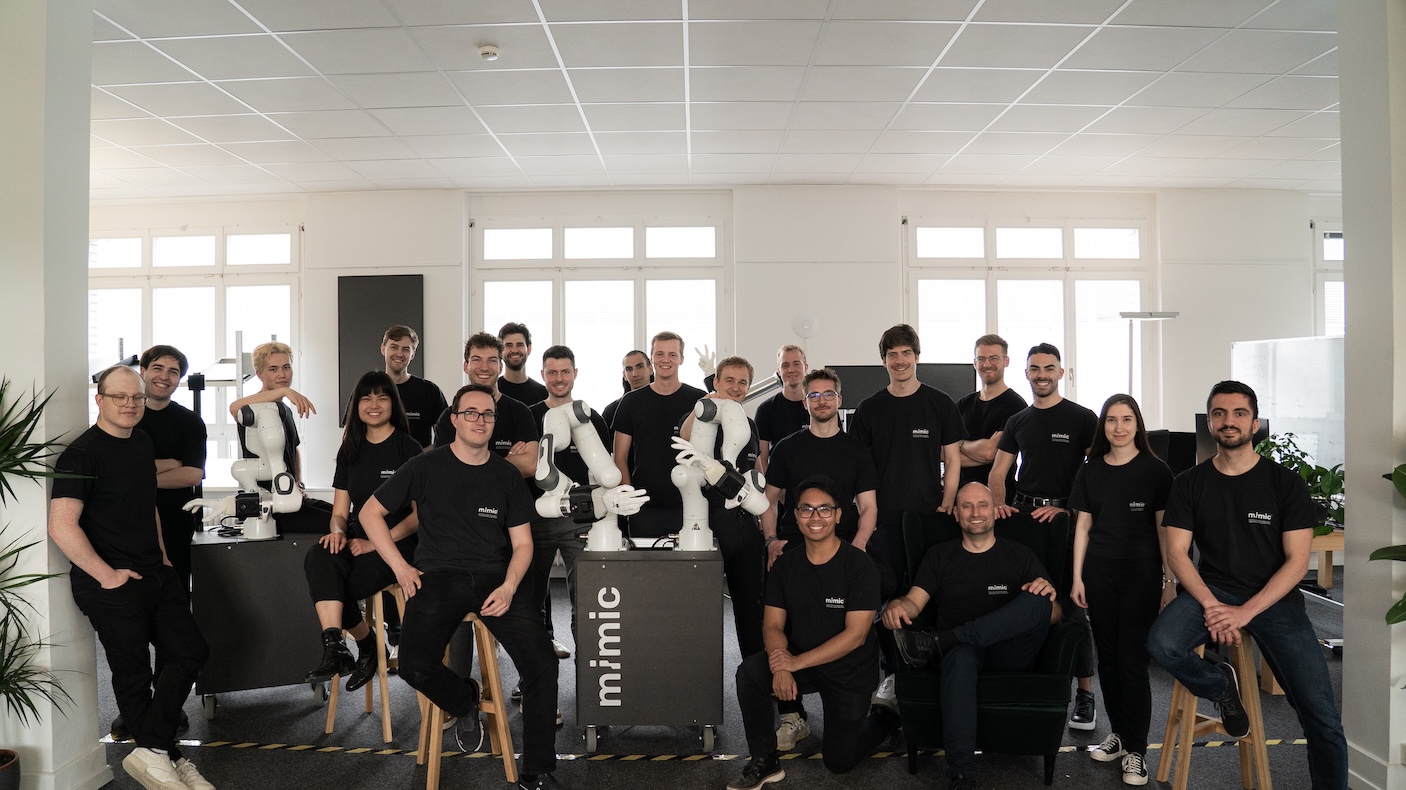Digital Health in Europe: A Record-Breaking Year for Founders & Investors in DACH
In our first version of this blog post from March 2021, one part of our series Digital Health in Europe: A Data-Driven Blog Series by Speedinvest, we mapped out 142 startups and identified macro-level trends with the hope to give a comprehensive overview of the state of digital health in the DACH region. In this update, we present version 2.0 of the map and zoom in on 2021’s funding highlights and trends. TL;DR: it’s been a record-breaking year!
The Map 2.0: 196 startups that shape the Digital Health ecosystem in the DACH region
Compared to the previous version of the map, we’ve added 54 startup companies, proving that DACH continues to thrive in the digital health sector. Roughly 50% of the companies we’ve added were around before 2021, but didn’t meet our methodology criteria back then. The other half are companies that were actually founded (and funded) in 2021. The additions are spread across multiple sub-categories, with Women’s Health and Consumer having the biggest increase in activity, and Enabling Tech continuing to be the sub-category with the most overall companies.

This is the second version of our map and we’ll continue to expand and improve it. If your company is not on the map and you’d like to be included, please fill in this form and we’ll add you in the next update!
A few trends we saw in 2021:
- Quick commerce is coming to medication: Companies such as Mayd, First A or Kurando are trying to get a chunk of the growing online drug sales market. Starting with high convenience, fast delivery and focus on over-the-counter products, we believe that the holy grail is cracking the (e)Rx space
- Consumer health & wellness is getting even more personalized: Based on (digital) biomarkers from wearables, continuous glucose monitors or diagnostic tests, companies such as Lykon aim to improve individual health outcomes
- Enabling tech is increasing its relevance: For both legacy players and digital health providers, the use and integration of next-gen software tools (Avelios, Doctorly), solutions for lab & testing infrastructure (daslab), building blocks for compliant software and API/connectivity layers (Thryve, xund) will be key to bringing patient (and clinician!) experience to the next level.
- Workplace health is moving upmarket, both physical and mental: Primarily driven by rising demand due to lasting lockdowns and home office regulations, this sector continues to see more traction and adoption among companies of all sizes, with players such as Humanoo, nilo.health and Kyan taking advantage of this opportunity

Digital Health in DACH is growing up: The record-breaking year of 2021
Digital health seems to be maturing in the German-speaking world. In our blog from last year, we found that digital health startups in the region raised approximately €900m in VC funding between 2010 and 2020. With another €900m of VC funding in 2021 alone, this amount has doubled within the past 12 months. But, as we are only including data from rounds that are publicly available, the total amount of funding going to digital health companies over the last decade can be assumed to be well above €2bn. This is an impressive development and shows that there is a high investor appetite to fund the future of an industry that, despite lagging behind in terms of digitalization, still accounts for spending equal to more than 12% of Germany’s GDP.
Another sign that the healthcare ecosystem is growing is the increase in M&A activity in 2021. Tracking with more activity across all of Europe, there were seven exits in the region in 2021, totaling 17 since 2010. Notable mentions are Jameda’s acquisition by Docplanner and Medlanes’ acquisition by Zava. This is - especially on deal value - still an extremely low level compared to the US (the US saw 79 deals in Q3 of 2021 alone), but on par with the UK, which also had 17 exits since 2010. You can find out more about the European digital health exit landscape in our recent blog article.
Related Reading: Top Early-Stage European Healthtech VC Funds
The reasons for it: Increasing round sizes and continuing policy developments
In light of overall trends in VC, it’s no real surprise that round sizes and valuations have also started to soar in the digital health segment. In Germany alone, there were 12 rounds that were more than $15m. This is more than in the previous five years combined.
These Series A and growth Stage rounds are also the reason for the doubling in overall VC funding in 2021: looking only at Caresyntax ($130m), Mindmaze ($125m), Ada Health ($90m), Kaia Health ($75m), PlusDental (€35m), Wellster Healthtech (€35m), Formel Skin (€30m), Avi Medical ($28.5m), Kenbi (€23.5m), and Clue (€16m) the top 10 Scale-ups accounted for more than two-thirds of total VC funding in the space.
However, also at an earlier stage, we see round sizes increase: most notable Seed rounds of 2021 include, for example, Mayd’s $15m round, MedkitDoc’s €7m round, or Lykon’s €6.4m round.
Last year we argued that one of the reasons for more activity in the digital health space are regulatory advancements, especially in Germany. Looking at the status quo, this can only be emphasized. While there have been some setbacks, such as the postponed rollout of e-prescriptions in Germany due to an unsuccessful test run, there is no doubt that many of the initiatives that have been started are here to stay and gaining traction:
- While only accounting for a tiny share of the public reimbursement budget (Handelsblatt approximated the prescription volume to a total €18m in the first year of DiGA), the number of registered DiGAs in the BfArM registry has increased to 28, up from only 10 in March 2021 (+180% in less than a year). Still, there is a lot to be done around the adoption and education of doctors and patients alike for it to become a mass-market success.
- In a similar fashion, Germany is also launching their DiPA program, making care applications also reimbursable. While we don’t expect this to become a huge market anytime soon, it opens another channel for solutions in the (elderly) care space.
- And with the €4bn+ heavy KHZG, Germany is committed to investing heavily in the modernization of hospital IT systems, fostering digitization in a sector that desperately needs it. It is to be seen how much of this can be taken up by startup or scaleup companies, but it definitely will increase budgets for new software tools and services innovative companies can tap into.
This environment and regulatory tailwinds have led to an increase in the quantity and especially in the skill of founder teams tackling challenges in the healthcare system. Serial founders from other sectors are more likely to start something new in the space, and healthcare professionals are challenging the status quo more and more often with solutions they want to build from the ground up.
It’s an exciting time for European Digital Health!
We are bullish on the future of digital health in Europe and would love to get in touch with you if you are too! Drop Felix Fein an email or get in touch on LinkedIn if you’d like to share feedback - or if you’re building a digital health startup and are looking for advice around funding!
Disclaimer: The aim of this map and blog is neither to be exhaustive nor to rank startups, but rather to chart the rapidly expanding DACH digital health startup ecosystem. Check out our methodology blog for our inclusion/exclusion criteria. In a nutshell: We’re only including companies that build health-focused software, have some form of VC or angel funding and were founded since 2010.
Sources: Dealroom, Crunchbase, internal deal flow research
Learn more about the Speedinvest Health team and sign up for our newsletters to get our exclusive content delivered straight to your inbox.













.svg)
